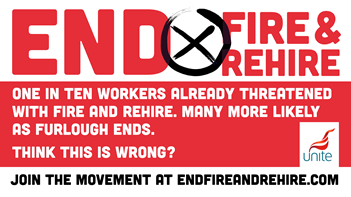Fat cat chief execs getting fatter
Hajera Blagg, Tuesday, August 19th, 2014As the latest earnings figures show the average worker’s wages being gutted, Britain’s top bosses continue giving themselves obscene pay rises, a new study shows.
The study, published Monday (August 18) by the High Pay Centre, found that the chief executives of the UK’s 100 biggest listed companies earned on average 143 times more than their staff.
The worst offender was Rangold Resources, where CEO Mark Bristow took home £4.4m last year. The company’s workers, many of whom work in African mines, earned almost 1,500 times less than their boss.
Compass Group, an Essex-based multinational that contracts food services, employs many low-wage workers, such as cooks, cleaners and security officers. These workers earn an average annual salary of just ÂŁ13,000: the lowest pay among the top 100 companies. Boss Richard Cousins, however, earned a hefty ÂŁ5.5 million last year, which amounts to 418 times more than a Compass Group worker.
CEO pay has not always been so outrageously disproportionate to worker pay. In the late 1990s, executives of FTSE 100 companies earned 47 times more than the average UK worker. Now, CEO pay is 174 times greater than the average UK worker, who earns ÂŁ27,000 a year.
In 1980, the chief executive-worker pay gap was even smaller – CEOs of the FTSE 100 earned an average of 18 times more than the average UK worker.
Last October, the government implemented new laws to tackle the growing disconnect between executive and worker pay. Now, all publically traded companies must publish as a single figure how much the CEO makes. Also, shareholders will now have a binding vote on executive pay.
Still, these measures have done nothing to close the ever-widening pay gap between bosses and the lowest-paid workers, many of whom struggle on less than the Living Wage, as UniteLive highlighted in our Living Wage series last week.
Indeed, as the High Pay Centre noted in an earlier report, after the new transparency and shareholder voting regime went into effect, not one FTSE 100 company has voted to lower executive pay.
“The High Pay Centre report demonstrates the obscene inequality in wealth and income in today’s Britain,” said Unite assistant general secretary Steve Turner. “There are those who are doing very well from austerity and those who face a constant battle to cover the ever-growing costs of energy, rent, transport, food and utilities.”
Turner explained that tackling runaway executive pay is a complex problem that requires coordinated effort from a reinvigorated trade union movement.
“Growing inequality over the past 30 years has its parallel in a weakened trade union movement and the collapse of collective bargaining,” Turner said. “A return to a strong, well-organised and effective trade union movement coupled with sectoral collective bargaining is the answer. A lone worker on a remuneration board is a red herring and publishing the executive-worker pay ratio in annual reports will identify the obscenity [of executive pay] but won’t address it.”
“It is a failure to introduce proper, effective and enforceable structures of corporate governance — structures that give workers a powerful collective voice in the companies they work for — that is at the heart of runaway corporatism both here at home and across much of the globe,” he added.
“An incoming Labour government must act to address both if we are to tackle gross inequalities and build a fairer, more just Britain.”
 Like
Like Follow
Follow


